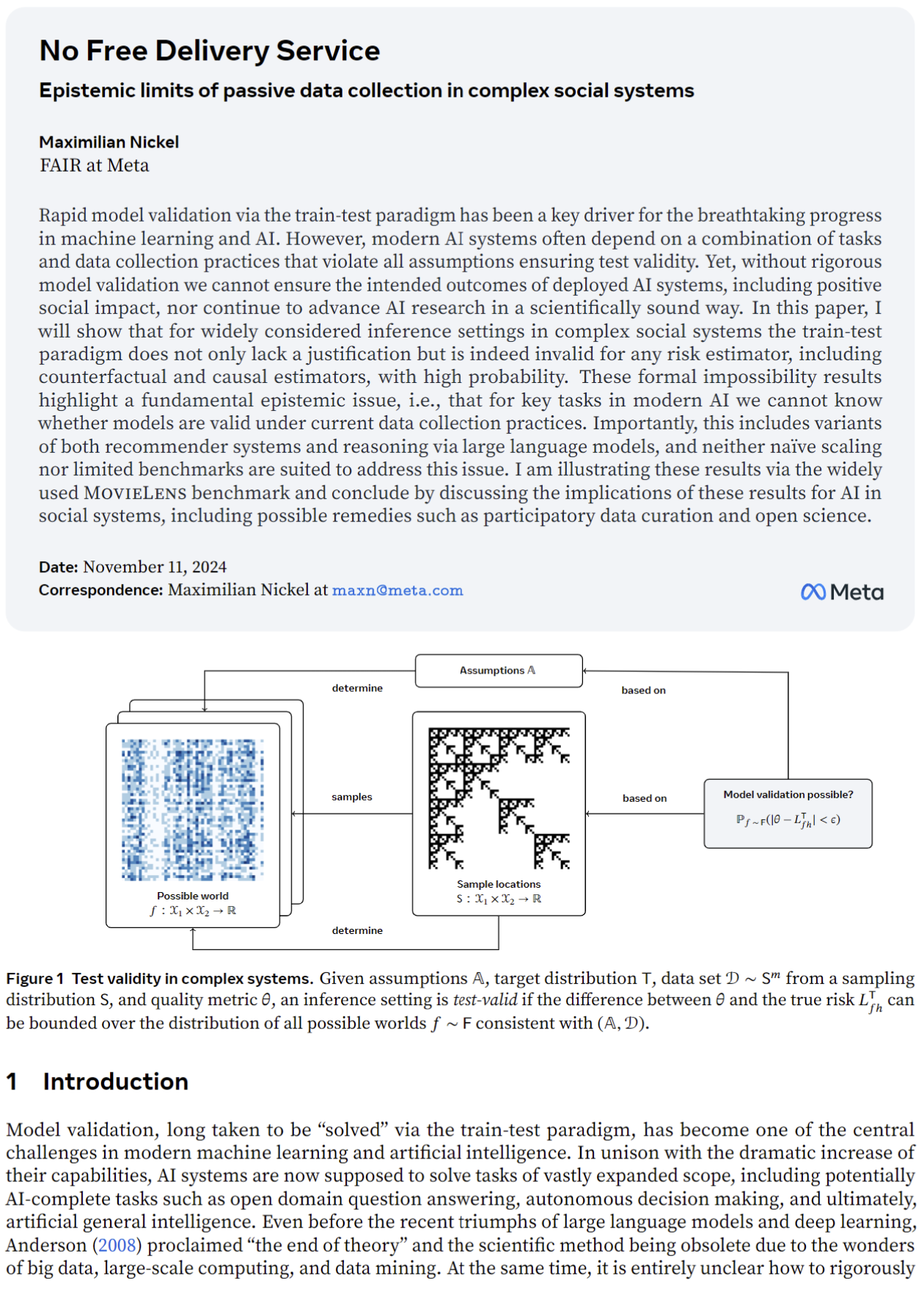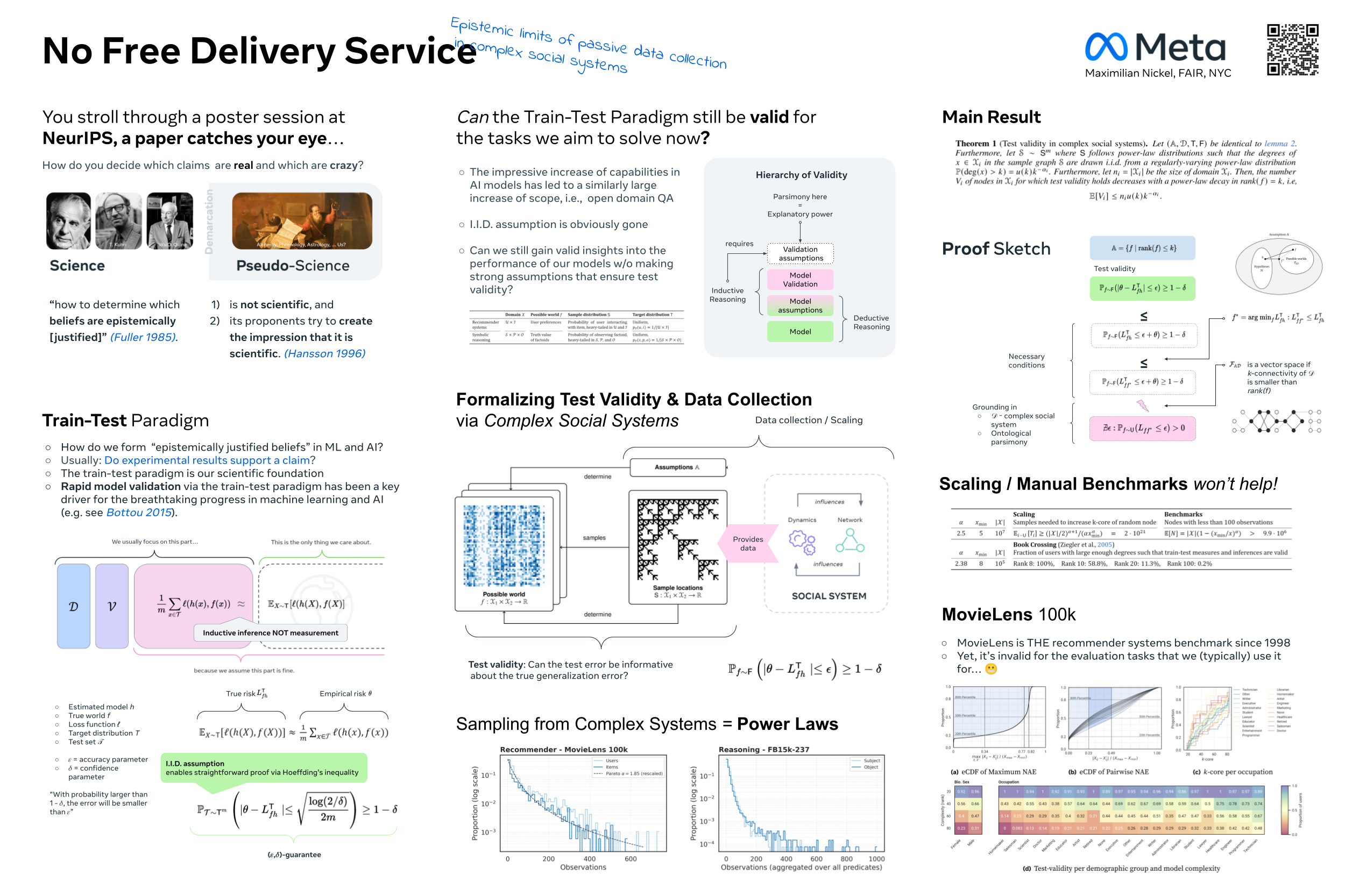No Free Delivery Service
Epistemic limits of passive data collection in complex social systems
Abstract
Rapid model validation via the train-test paradigm has been a key driver for the breathtaking progress in machine learning and AI. However, modern AI systems often depend on a combination of tasks and data collection practices that violate all assumptions ensuring test validity. Yet, without rigorous model validation we cannot ensure the intended outcomes of deployed AI systems, including positive social impact, nor continue to advance AI research in a scientifically sound way. In this paper, I will show that for widely considered inference settings in complex social systems the train-test paradigm does not only lack a justification but is indeed invalid for any risk estimator, including counterfactual and causal estimators, with high probability. These formal impossibility results highlight a fundamental epistemic issue, i.e., that for key tasks in modern AI we cannot know whether models are valid under current data collection practices. Importantly, this includes variants of both recommender systems and reasoning via large language models, and neither naïve scaling nor limited benchmarks are suited to address this issue. I am illustrating these results via the widely used MovieLens benchmark and conclude by discussing the implications of these results for AI in social systems, including possible remedies such as participatory data curation and open science.
BibTex
@inproceedings{nickel2024no,
title={No Free Delivery Service: Epistemic limits of passive data collection in complex social systems},
author={Nickel, Maximilian},
booktitle={The Thirty-eighth Annual Conference on Neural Information Processing Systems}
}


